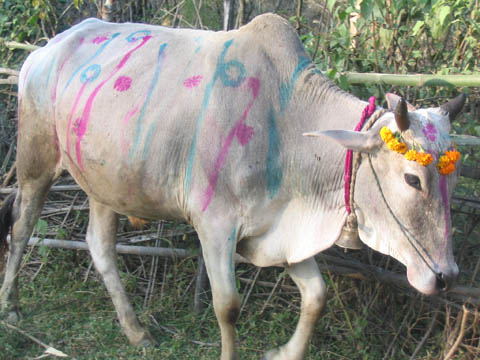There are countries in the world where some animals are revered, many, to the point of becoming mythological symbols of society and its traditions; in India, a place full of spirituality, some animals are highly respected and appreciated for being considered reincarnations of gods.of the Hindu worldview.
According to a centuries-old tradition, it is forbidden to kill them because they could contain the soul energy of some of the ancestors.Today’s Hindu culture, both in India and around the world, continues to maintain an attachment to these ideas.especially in rural Asian areas.Some of India’s most beloved gods have animal qualities or are practically animal.
- There are dozens of sacred animals in India.
- But the most popular are elephants.
- Monkeys.
- Cows.
- Snakes and tigers.
- Continue reading this Animal Expert article if you want to know the history of each of them.
The first of India’s sacred animals is the elephant, one of Asia’s most popular animals.There are two theories about his success. The best known is that the elephant comes from the god Ganesha, the god with human body and elephant head.
Legend has it that the god Shiva, leaving his home for battle, left his wife Pavarti pregnant with his son.Years later, when Shiva returned and went to see his wife, he found a man guarding the room where Parvati was showering.Both unkified entered a battle that ended with Ganesha’s beheading, Parvati, distraught, explains to her husband that this man was her and Shiva’s son and, in a desperate attempt to revive him, went in search of a head for Ganesha.and the first creature he met was an elephant.
From that moment on, Ganesha became the god who brought down obstacles and adversity, a symbol of luck and fortune.
Just as monkeys dance freely throughout India, there is also Hanuman, its mythological version.We believe that all these animals are the living form of this god.
Hanuman is worshipped not only in India, but also in almost every corner of the Asian territory; it represents strength, knowledge and above all loyalty, for it is the eternal ally of the gods and men.It is said to have a supernatural and unlimited character.strength and that he once jumped into the sun to take it for fruit.
The cow is one of the sacred animals of India because it is considered a gift from the gods, so Hindus consider sin eating beef and it is totally repudiated to sacrifice it, they are even more important than the Hindus themselves.Cows run or rest peacefully on the streets of India.
The veneration of this animal dates back more than 2000 years and is linked to abundance, fertility and motherhood.The cow was God Krishna’s special envoy on earth to feed his children and establish a connection with them.
This venomous serpent is considered sacred because it is closely related to the shiva deity, lord of the two superior and contradictory forces: creation and destruction.Religious stories tell that the snake was the animal this master always wore around his neck to protect himself.their enemies and all evil.
According to another legend (one of the most popular), the snake was born from a tear from the creator god Brahma when he realized that he could not create the universe alone.
We have completed the list of sacred animals with the tiger, a creature that has always seemed very mystical and enigmatic, in its stripes there is a special magic, this animal has always been much appreciated in India, it is considered sacred by two fundamental aspects : first, because according to Hindu mythology, the tiger was the animal that the deity Maa Durga used to fight in its battles , representing victory over any negative force and second, because it is the national symbol of this country.
Tigers are considered the link between man, earth and the animal kingdom.This bond has helped many people in India build better relationships with the land in which they live.
If you want to read more articles similar to, we recommend that you enter our curiosities section of the animal world.

